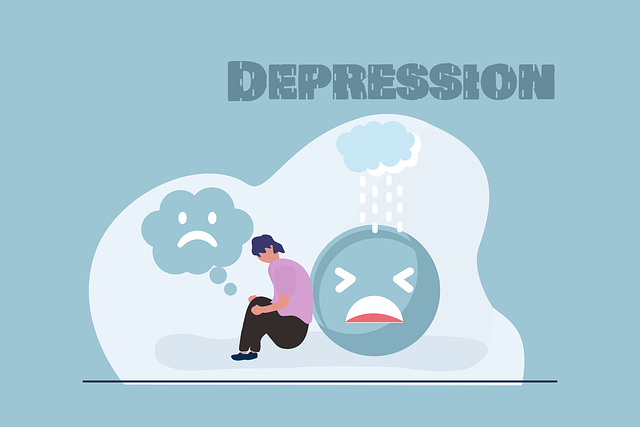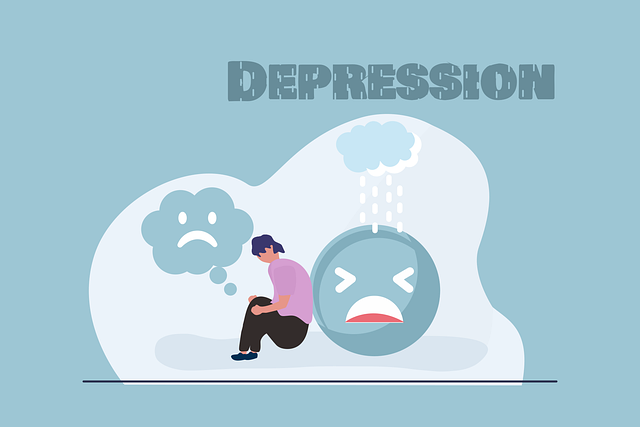Cultural competency in healthcare, especially for postpartum depression (PPD), is vital through Parker Postpartum Depression Therapy (PPDT). Professionals must overcome unconscious biases and language barriers by incorporating social skills training, risk management planning, and self-care routines. Educational podcasts and bias recognition further enhance cultural sensitivity. Effective communication strategies, including active listening and empathy, tailored to diverse backgrounds improve patient engagement and outcomes, as evidenced by Parker Stress Management Workshops Organization's research. Interactive workshops, case studies, and role-playing scenarios in cultural competency training programs, with regular assessments, foster better patient outcomes across diverse communities. Continuous follow-up ensures sustained benefits and adaptability to societal changes.
Cultural competency training is an essential tool for healthcare providers, especially in addressing mental health issues like postpartum depression. This article explores the significance of cultural competence in healthcare, focusing on Parker Postpartum Depression Therapy. We delve into identifying unconscious biases and barriers that impact patient care, offering strategies for effective communication with diverse populations. Additionally, best practices for implementing and evaluating training programs are provided, ensuring healthcare providers can offer culturally sensitive and effective therapy.
- Understanding Cultural Competency in Healthcare: Why It Matters for Parker Postpartum Depression Therapy
- Identifying Barriers and Biases: Unconscious Assumptions and Their Impact on Patient Care
- Developing Effective Communication Strategies for Diverse Populations
- Implementing and Evaluating Cultural Competency Training Programs: Best Practices for Healthcare Providers
Understanding Cultural Competency in Healthcare: Why It Matters for Parker Postpartum Depression Therapy

Cultural competency in healthcare is an essential aspect that significantly impacts patient outcomes, especially when addressing mental health issues like postpartum depression. In today’s diverse society, understanding and appreciating cultural differences among patients is crucial for Parker Postpartum Depression Therapy (PPDT). PPDT professionals must recognize that their patients’ backgrounds, beliefs, and values shape their experiences and perceptions of healthcare. This awareness fosters a more inclusive and effective therapeutic environment.
By incorporating social skills training and risk management planning for mental health professionals, PPDT therapists can enhance their ability to connect with diverse clients. These strategies enable healthcare providers to navigate cultural barriers, improve communication, and tailor treatments accordingly. Moreover, encouraging the development of a robust self-care routine among mental health professionals is vital. It ensures that they remain culturally sensitive, empathetic, and resilient in providing Parker Postpartum Depression Therapy while addressing their own well-being.
Identifying Barriers and Biases: Unconscious Assumptions and Their Impact on Patient Care

Unconscious assumptions and biases can significantly impact healthcare delivery, especially when it comes to understanding and addressing mental health concerns like postpartum depression (PPD). Healthcare providers often bring their own experiences, cultural backgrounds, and unconscious stereotypes into the patient-provider relationship. These factors can lead to misjudgments and hinder effective communication with patients from diverse communities. For example, a provider’s assumptions about a new mother’s capability to care for her child might be influenced by their own cultural norms, potentially missing signs of PPD due to these biases.
Such barriers can result in delayed or inappropriate treatment, as providers may fail to recognize symptoms or provide culturally sensitive therapy, such as Parker Postpartum Depression Therapy. Encouraging self-care practices and mental wellness through the production of educational Mental Wellness Podcast Series can help address these issues. By recognizing and challenging unconscious biases, healthcare professionals can improve their cultural competency, ensuring that every patient receives personalized care tailored to their unique needs and background, including strategies for PPD prevention and management.
Developing Effective Communication Strategies for Diverse Populations

Effective communication is a cornerstone of quality healthcare delivery, especially when serving diverse populations. Healthcare provider cultural competency training equips professionals with strategies to bridge gaps in understanding and facilitate meaningful interactions. By learning to navigate language barriers, recognizing non-verbal cues, and adapting communication styles, providers can improve patient engagement and outcomes. This becomes particularly crucial in addressing mental health concerns such as postpartum depression, where sensitive discussions and trust are essential for treatment success.
For instance, a study conducted by the Parker Stress Management Workshops Organization highlighted that culturally responsive care significantly improved outcomes for patients with depressive symptoms. Training should include role-playing scenarios to practice active listening, empathy, and clear explanations tailored to individual cultural backgrounds. These skills not only enhance the patient-provider relationship but also ensure that essential information is conveyed accurately, reducing potential misunderstandings and promoting better adherence to treatment plans.
Implementing and Evaluating Cultural Competency Training Programs: Best Practices for Healthcare Providers

Implementing and evaluating cultural competency training programs is paramount for healthcare providers to effectively address diverse patient populations. Best practices involve integrating interactive workshops, case studies, and role-playing scenarios that cover a wide range of cultural topics, including race, ethnicity, gender identity, and mental health conditions like postpartum depression (Parker Postpartum Depression Therapy). Regularly assessing the impact of training through pre- and post-assessments ensures knowledge retention and identifies areas for improvement.
Additionally, fostering an inclusive learning environment where participants can share their experiences and perspectives enhances empathy building strategies. Encouraging self-reflection on personal biases and promoting open dialogue contributes to depression prevention by cultivating cultural sensitivity. Regular follow-up sessions and continuous quality improvement processes are essential to sustain the benefits of training and adapt programs as societal needs evolve, ultimately leading to better patient outcomes across diverse communities.
Cultural competency training is an essential tool in enhancing healthcare services, especially for specialized areas like Parker Postpartum Depression Therapy. By addressing unconscious biases and implementing effective communication strategies, healthcare providers can create a more inclusive environment, improve patient outcomes, and better serve diverse populations. This article has outlined key components of successful cultural competency programs, emphasizing the need for continuous education and evaluation to ensure equitable care for all patients, including those seeking Parker Postpartum Depression Therapy.














